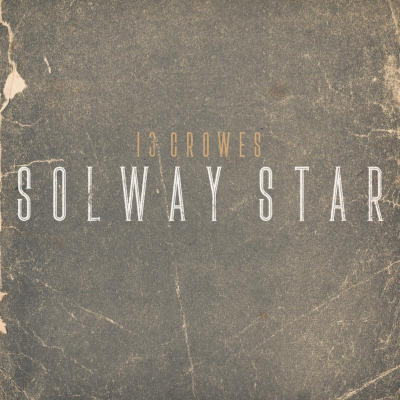The working class have always had their own art. Yet to think of “art” is to think of Sistine Chapels, Roman marbles and operas for the landed gentry. Pop music has done more to commemorate the concerns of the 9-5 class since the written word. So when a band like 13 Crowes arrive on the scene writing songs by grafters for grafters, it’s important to take note.
Little could be considered more noteworthy than Cammy Black’s vocals – intense, powerful and full of grit. Proof that anyone can do it if they put the hours in. Not a showy anti-singing voice like Johnny Rotten/Lydon, but simply a big petrol guzzling 4X4 vehicle for delivering the lyrics. Sometimes it’s hard-rock screaming, other times it sounds like a particularly hungover Bruce Springsteen.
Comparisons to The Boss don’t end there. This rock quartet of musicians, undoubtedly talented as they may be, just happen to veer into Springsteen territory to a distracting amount. Perhaps it’s down to the fact that the concerns of the average 9-5 factory worker in 70s New Jersey are eerily similar to those of the Annan based zero hours contract wage slave.
But for all the socio-economic concerns of the lyrics, the songs still manage to remain, on the whole, good. Jimmy Tick Tock epitomises the grafters, the workers, those keeping their head down as the world pours down on them. The protagonist contents themselves with the fact it’s “only sad songs that make me happy”.
At its worst, Solway Star is rock for people who post Peaky Blinder misquotes on Instagram. At its best, it’s a great debut from salt-of-the-earth Scottish band deserving your attention. It’s easy to imagine them rocking out in a small venue giving an audience the time of their life.
For all the peaks and troughs this album may contain, when Dying Breed kicks in, it’s impossible not to become swept away, especially if you spot the soulful harmonica flowing away in the background.
The album ends with the downbeat DG12. Not quite life-affirming yet certainly not pessimistic. “It’s only when they hold me underwater I can breathe”. It’s the pressure that has made these men and their music. The unrelenting grime, the grit of the parochial Scottish town. They have made great work with their roots, the real question is where do they go next?
